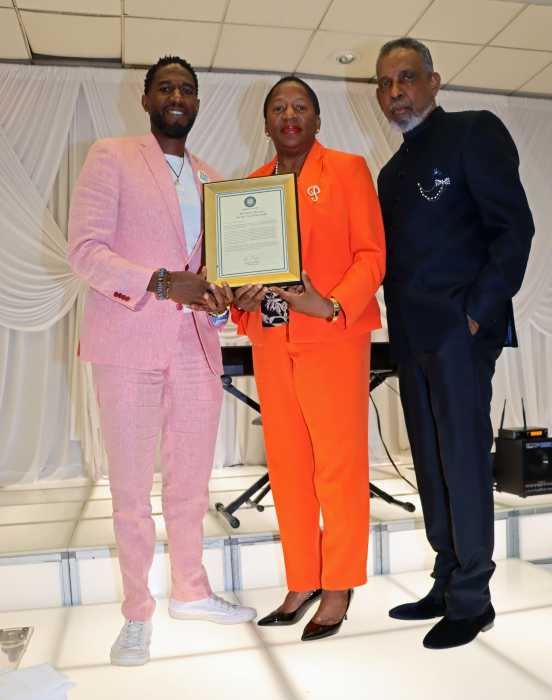The New York Times is facing criticism from contributors and advocacy organizations who wrote open letters to the newspaper on February 15 regarding its coverage of issues pertaining to transgender and non-binary individuals.
One of the letters signed by hundreds of contributors — including transgender and non-binary contributors — hit the newspaper for the way it has characterized gender diversity.
“The newspaper’s editorial guidelines demand that reporters ‘preserve a professional detachment, free of any whiff of bias’ when cultivating their sources, remaining ‘sensitive that personal relationships with news sources can erode into favoritism, in fact or appearance,’” stated the letter, which was addressed to Philip B. Corbett, the associate managing editor for standards at The New York Times. “Yet the Times has in recent years treated gender diversity with an eerily familiar mix of pseudoscience and euphemistic, charged language, while publishing reporting on trans children that omits relevant information about its sources.”
In the letter, the contributors pointed to multiple examples of stories that they believed were problematic. One story they took issue with was entitled “The Battle Over Gender Therapy,” which they said was offensive because the story referred to the term “patient zero” — “a phrase that vilifies transness as a disease to be featured,” the letter said.
The increased attention on media coverage of trans issues coincides with a nationwide flood of bills targeting transgender youth and adults across many areas of life, including in healthcare, sports, and bathrooms.
The letter made it a point to say that the paper’s reporting on transgender issues has had a negative influence in courtrooms, where conservatives have used the newspaper’s articles to support their transphobic legal claims. The letter states that Arkansas’ attorney general last year cited three New York Times articles in an amicus brief defending the state’s policy barring certain gender-affirming care to minors.
“The natural destination of poor editorial judgment is the court of law,” the letter stated.
Among other points, the letter also repeated longstanding complaints over the newspaper’s approach to the broader LGBTQ community, as well, including the paper’s coverage of AIDS and the reluctance to use the term “gay” until the late 1980s.
LGBTQ advocacy groups, celebrities, and others also penned a separate letter in solidarity with the contributors. That letter — spearheaded by GLAAD — outlined three core demands: to stop running biased anti-trans stories, to hold a meeting with trans community members and leaders, and to hire full-time writers and editors who are trans.
“Repeatedly, the Times has shown a willful disregard of LGBTQ community voices and the concerns so many have shared about their inaccurate, exclusionary, often ridiculous pieces,” the letter stated.
That letter also received a long list of signatures, including groups like the Ali Forney Center, Athlete Ally, Equality New York, NYC Pride, the New York City LGBT Community Center, the Hetrick Martin Institute, and celebrities like Angelica Ross, Cynthia Nixon, Gabrielle Union-Wade, and Margaret Cho.
GLAAD also positioned a billboard truck near the Times’ headquarters that read, “Dear New York Times: Stop questioning trans people’s right to exist & access to medical care.”
According to screenshots widely shared on social media, New York Times executive editor Joe Kahn and opinion editor Kathleen Kingsbury addressed the issue in an internal letter to company employees in which they defended the newspaper’s reporting and made the point that employees’ “participation in such a campaign is against the letter and spirit of our ethics policy,” which bars Times journalists from aligning with advocacy groups and joining protest actions on public policy. “We also have a clear policy prohibiting Times journalists from attacking one another’s journalism publicly or signaling their support for such attacks.”
The note insisted that the paper’s coverage of trans issues “is important, deeply reported, and sensitively written” and that a review of the Times’ stories on trans issues “shows that the allegations this group is making are demonstrably false.”
“We do not welcome, and will not tolerate, participation by Times journalists in protests organized by advocacy groups or attacks on collegaues on social media and other public forums,” the Times wrote. “We live in an era when journalists regularly come under fire for doing solid and essential work. We are committed to protecting and supporting them. Their work distinguishes this institution, and makes us proud.”
The group behind the original letter responded on February 16 accusing the New York Times of using their response “as an opportunity to attempt to dismiss the well-documented complaint of editorial bias detailed in our letter.” They further said the Times dismissed their letter by saying that it “came through GLAAD.”
“However, GLAAD confirmed to us that they did not deliver a copy of our letter to the New York Times,” they wrote. “We look forward to clarification from the Times.”
































